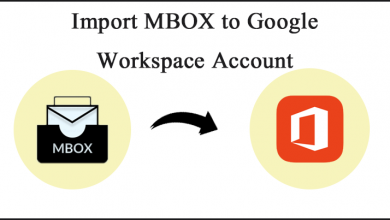How ERPs Are Advantageous for The Manufacturing Businesses?

The manufacturing industry relies on efficient input and output management more than almost any other form of business. Companies in this industry must gather capital from all over the world, keep track of their existing inventory, and change orders based on sales forecasts. It’s not easy, particularly if you’re doing it by hand.
Fortunately, digital solutions are now available that connect the entire operation, automating many of the so-called “back office” functions and increasing reliability and performance. Many previously labor-intensive (and error-prone) processes are automated by these Enterprise Resource Planning (ERP) systems, which streamline the entire business. Many plant managers discover that they can save a significant amount of money.
With that in mind, this article entails the cherry-picked reasons to implement a manufacturing ERP system in your business acumen. But first, let’s see what ERP for the manufacturing industry is.
What Does A Manufacturing ERP System Do?
Since the mid-90s, ERP systems have grown in popularity. Manufacturing ERP software includes manufacturing-specific features that help to streamline and automate key business and manufacturing processes. Modern manufacturing ERPs are integrated into the same databases that power day-to-day business processes and applications, resulting in a comprehensive business management framework.
Why is Manufacturing Management Software Important for My Business?
Small and midsize manufacturers profit from manufacturing-specific ERP because it provides genuine and long-term value. Manufacturing ERP provides many advantages over generic ERPs, from handling your main business operation, manufacturing procedures, and inventory levels to managing your daily finances and accounting.
Thus, manufacturing companies need ERP with industry-specific features and capabilities to control, automate, monitor, collaborate, and link every phase of a complex manufacturing process, from order receipt to shipment.
Benefits of ERP for Manufacturing Industry
Utilizing ERP tools is one of the options available to manufacturers. The system is designed to streamline processes, increase performance, and lower costs (read this article for more info). So, what are the most important advantages of ERP applications for the manufacturing industry? Find out the answers in the sections below.
Cost Reduction with Efficiency
Investing in technology to help streamline your processes will help you save money and time. Instead of completing manual tasks like updating data for every field of your company, employees would be able to concentrate their attention on tasks that involve the application of their intellect.
Multiple systems will be eliminated as a result of system consolidation, and managers will be able to view a variety of dashboard-style reports to quickly see details such as whether the production line is running smoothly and pending sales orders against inventory levels in one location.
Making Strategic Decisions
A stable ERP solution for manufacturing improves a company’s ability to make decisions. It provides comprehensive insights and visibility into every department and business process, enabling the organization to make more informed, accurate, and timely business decisions. Access to key performance metrics like total profit, sales margin, and so on helps manufacturing companies stay on track with their objectives and make necessary internal decisions when necessary. ERP for the manufacturing industry helps management simplify day-to-day activities by providing full visibility to internal processes and divisions.
Observance of Regulations
Batch traceability is greatly aided by ERP systems. The entire product journey can be tracked and logged for enforcement and safety standards, from the receipt of raw materials to the dispatch of finished products. For complete traceability, ERP can help with barcoding, labeling, auditing, and inventory management, which is a priority for producers.
An Advantage in the Marketplace
Manufacturers can use ERP to manage processes and automate where appropriate, optimize production, maintain quality and safety, reduce waste, and increase efficiencies. As a result, both of these enhancements would boost competition in an ever-competitive industry.
Quicker Response to Market Conditions
ERP for the manufacturing industry provides real-time data analysis, which aids companies in better estimating, planning, adjusting, and responding to evolving market demands. Decision-makers consult system-generated reports daily, to better understand evolving market demands and capitalize on customer purchasing trends. Managers can get a 360-degree view of their business with detailed observations, which helps them minimize forecasting mistakes and focus on new opportunities as they arise.
Incorporate All Departments of a Manufacturing Company
ERP systems can integrate all departments of a manufacturing company, including finance, human resources, inventory, distribution, and customer support, among others. This eliminates the need for the company to personally track each department. All departments can communicate via a single system, and managers can get real-time data from all of them.
Consistency
Quality control is based on consistency. The achievement of full customer satisfaction necessitates the highest level of quality. Managing the inventory at all stages of production from a single platform ensures unrivaled continuity, which your customers can value. If a customer can’t rely on your produce to always be of the same high quality as before, they’ll quickly look for another manufacturer.
Improved Customer Satisfaction
Ultimately, enhanced customer satisfaction is what matters the most! Accurate production planning, better inventory control, streamlined process scheduling, and coordination of distribution networks can all help manufacturers maximize on-time delivery of products. Maintaining customer loyalty requires timely delivery of goods. Manufacturing ERP solutions include real-time data so decision-makers can get a realistic picture of inventory levels at any time.
Summing it Up—It’s Time to Implement Manufacturing Software Systems
To compete, a manufacturing business must be able to optimize efficiency and workflow. It cannot afford to squander funds or time. Management must have a firm grasp on plant processes, costs, and the ability to reorganize operations to meet business objectives.
Implementing an ERP system is important for a business because there are several possible errors that can occur in the warehouses, as well as during transportation and storage, to name a few. So, introduce a quality ERP framework to get lean and increase your fault-finding capability.




